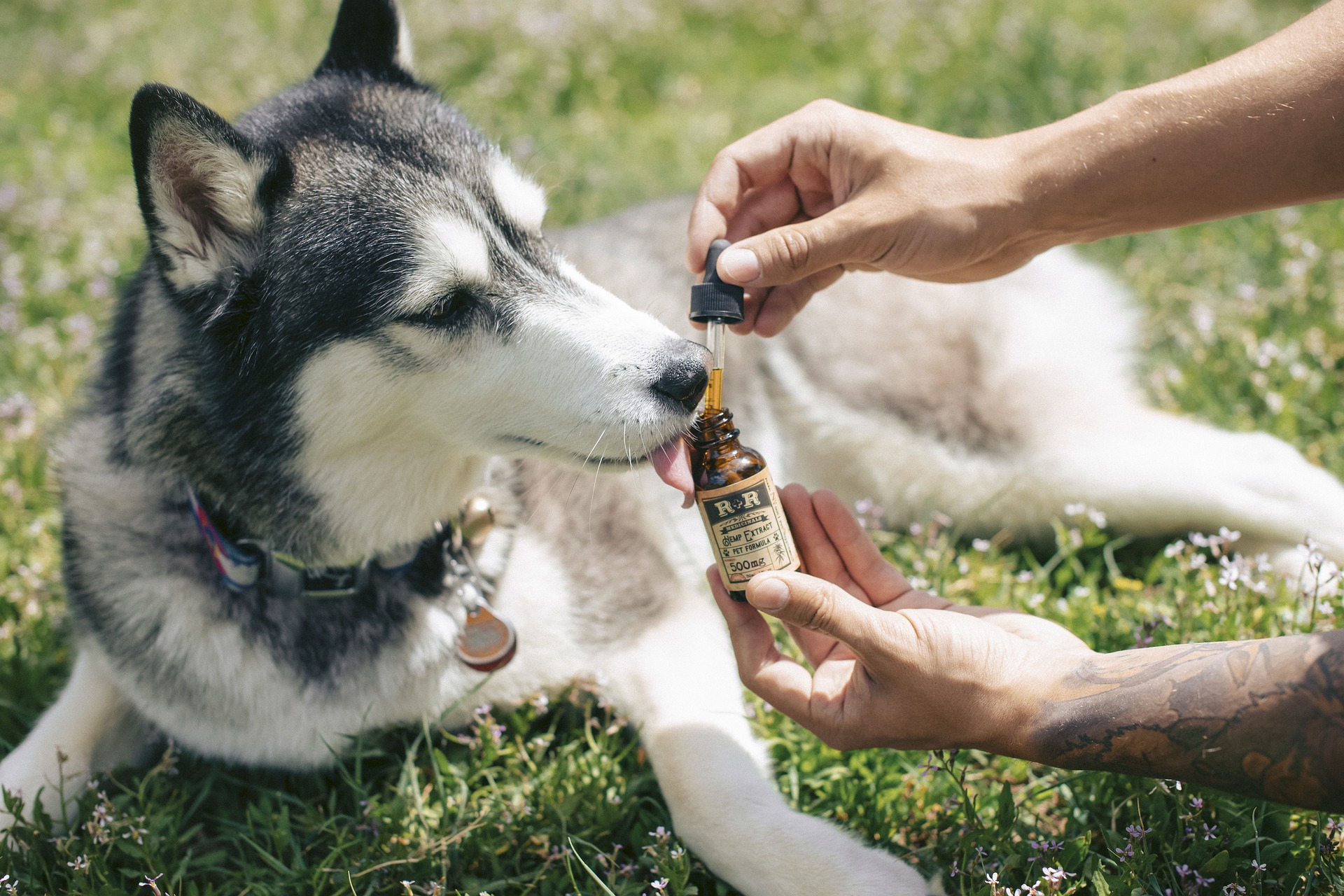The Ultimate Guide to Using CBD Oil for Dogs
Introduction:
CBD oil has gained popularity not only for human use but also for our furry companions. As pet owners seek natural remedies for various ailments in dogs, CBD oil has emerged as a promising option. However, navigating the world of CBD for pets can be daunting. In this comprehensive guide, we’ll delve into everything you need to know about using CBD oil for dogs, including its benefits, safety considerations, dosages, and potential applications.
Understanding CBD Oil:
CBD, or cannabidiol, is a compound extracted from the cannabis plant. Unlike THC, another well-known cannabinoid, CBD is non-psychoactive, meaning it doesn’t produce a “high” sensation. Instead, it interacts with the endocannabinoid system (ECS) in both humans and dogs, which plays a crucial role in regulating various physiological functions.
Benefits of CBD Oil for Dogs:
CBD oil offers a range of potential benefits for dogs, including:

- Pain Management: CBD’s anti-inflammatory properties may help alleviate pain associated with conditions such as arthritis or injuries.
- Anxiety Relief: CBD has shown promise in reducing anxiety and stress in dogs, whether triggered by separation, loud noises, or other factors.
- Seizure Control: Some studies suggest that CBD oil may help manage seizures in dogs with epilepsy or other neurological disorders.
- Improved Appetite and Digestion: CBD can stimulate appetite and aid in digestion, particularly in dogs experiencing nausea or gastrointestinal issues.
- Skin and Coat Health: CBD’s anti-inflammatory properties may help soothe skin irritations and promote a healthy coat.
Safety Considerations:
While CBD is generally considered safe for dogs, there are important considerations to keep in mind:
- Quality and Source: Choose CBD oil specifically formulated for pets, preferably from reputable manufacturers that provide third-party lab testing to ensure potency and purity.
- THC Content: Ensure the CBD oil contains minimal THC, as dogs are more sensitive to its psychoactive effects.
- Consultation with a Veterinarian: Before starting your dog on CBD oil, consult with a veterinarian, especially if your dog has underlying health conditions or is taking other medications.
- Start Low and Go Slow: Begin with a low dosage of CBD oil and gradually increase it as needed while monitoring your dog’s response. Observe for any adverse effects such as drowsiness or changes in behavior.
Dosage Guidelines:
Determining the appropriate dosage of CBD oil for your dog depends on various factors, including their weight, age, and the severity of the condition being treated. As a general guideline:
- Start with 0.05–0.25 milligrams of CBD per pound of body weight, administered twice daily.
- Monitor your dog’s response and adjust the dosage accordingly, increasing gradually if needed.
- Split the dosage evenly throughout the day to maintain consistent levels of CBD in your dog’s system.
- Keep a journal to track your dog’s progress, including any changes in symptoms or behavior.
Methods of Administration:
CBD oil for dogs can be administered in various ways, including:
- Sublingual Administration: Place the desired dosage of CBD oil under your dog’s tongue for faster absorption into the bloodstream.
- Mixing with Food or Treats: Mix CBD oil with your dog’s food or treats, though this method may delay the onset of effects.
- Topical Application: CBD-infused balms or creams can be applied directly to the skin to target localized pain or skin conditions.
Potential Applications:
CBD oil can be used to address a wide range of health issues in dogs, including:
- Pain and Inflammation: CBD oil may provide relief from chronic pain associated with conditions such as arthritis or hip dysplasia.
- Anxiety and Stress: CBD oil can help calm anxious dogs, whether due to separation anxiety, loud noises, or travel-related stress.
- Epilepsy and Seizures: CBD oil may reduce the frequency and severity of seizures in dogs with epilepsy or other seizure disorders.
- Nausea and Digestive Issues: CBD oil can stimulate appetite and alleviate nausea, making it beneficial for dogs experiencing gastrointestinal problems.
- Skin Conditions: CBD oil’s anti-inflammatory properties can soothe skin irritations, allergies, and other dermatological issues.
Conclusion:
CBD oil offers promising benefits for dogs, ranging from pain relief and anxiety reduction to improved appetite and skin health. However, it’s essential to prioritize safety by consulting with a veterinarian, starting with low dosages, and monitoring your dog’s response closely. With careful attention and proper administration, CBD oil can be a valuable addition to your dog’s wellness regimen, helping them lead happier, healthier lives.







